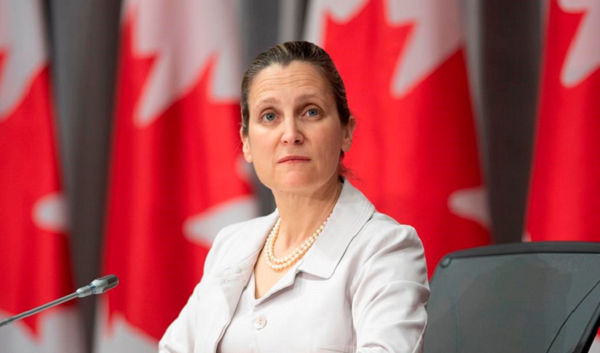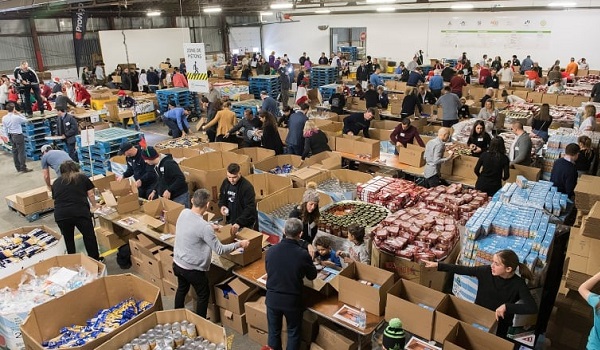Brutal war: Family members dying in Sudan after lengthy delays in Canadian program, community says
Seven months after the launch of a federal program to help Canadians rescue their relatives from Sudan’s brutal war, not one of their family members has managed to reach Canada.
While their applications go through a lengthy vetting process, some people on the waiting list have died in the chaos of the war, while others are being told that their processing will take up to 54 months, Sudanese-Canadian community members say.
The Sudan war has killed as many as 150,000 people since last year, according to independent estimates. More than 10 million people have been forced to flee their homes, making it the world’s biggest displacement crisis, and millions more are facing acute hunger or starvation.
Sudanese Canadians describe the anguish of learning about the deaths of their family members as they await the processing of their residency applications under the new program.
“I am consumed by grief, devastation and anger,” said Seif Omran Mansour, a civil engineer in West Vancouver who applied in February to bring his sister from Sudan to Canada.
“The inefficiency and sluggishness of this process cost my sister her life,” he said. “My sister’s death could have been avoided had the system been quicker and more responsive to the dire situation we faced.”
His 60-year-old sister, Ihsan Omran Mansour, was a researcher at the central veterinary lab in Khartoum, the capital of Sudan. After the war erupted last year, she and her two daughters had to flee repeatedly from the violence, moving from one city to another in a bid to escape death.
Under the federal program, Mr. Mansour applied to sponsor their move to Canada. They were eagerly looking forward to reuniting with him for a safer life here, he said. But the government gave no indication of how long the processing would take.
Six months later, Ms. Mansour suffered a severe asthma attack in the city of Port Sudan. Unable to get proper medical care because of the war, she died from the attack.
Her death has been “extremely traumatic” for her family, because they’ve seen other people in war zones – including Ukrainians – arriving in Canada in much larger numbers after much faster processing, Mr. Mansour said.
“Sudanese Canadians have been subjected to prolonged delays and, frankly, discriminatory treatment. This disparity has only deepened my sense of injustice.”
The government announced the program last December and launched it in February, limiting the program to 3,250 applications. The cap was reached in June.
“As of Sept. 7, there were no approved applications or arrivals yet,” said Michelle Carbert, a spokesperson for Immigration, Refugees and Citizenship Canada.
In March, Immigration Minister Marc Miller had said he expects people from Sudan to begin arriving in Canada late this year. But when asked about this timeline, the immigration department did not confirm whether it is still valid.
“Processing times vary depending on the details of each application,” Ms. Carbert said. “Permanent resident programs include multiple assessment steps before an application is approved. IRCC is currently reviewing the submissions received for completeness, as quickly as possible.”
The expected arrival time seems to have slipped drastically, according to what many applicants have heard from their MPs and from the department. Some applicants have been told that the processing might not be completed until 2027 or 2028.
“They certainly deserve better from this government, and I’ll be continuing to make that case to Minister Miller,” said Mike Morrice, a Green Party MP from Kitchener, Ont., who has been trying to help the applicants.
“They’ve been in limbo for months,” he said. “The crisis in Sudan is devastating and yet the government hasn’t been able to move more quickly.”
Ms. Carbert, the IRCC spokesperson, noted the family reunification program was not the only pathway for Sudanese to reach Canada. Since May, 2023, under an earlier temporary measure, more than 2,600 people have been approved to travel to Canada on a permanent or temporary basis, she said.
But by contrast, critics noted, about 300,000 Ukrainians have been allowed to relocate to Canada since the Russian invasion began in 2022, and most are expected to apply for permanent residency.
The disparity between the Ukraine and Sudan programs is “a scandal of the first order,” according to Yonah Diamond, senior legal counsel at the Montreal-based Raoul Wallenberg Centre for Human Rights.
“This is not a matter of capacity, but can only be explained by a discriminatory policy that is costing lives with each passing day,” he said.
Razan Nour, who lives in Edmonton, has been helping her Toronto-based parents to try to get their family members from Sudan to Canada since the program launched in February. Since then, her uncle and her grandfather have both died, and her mother told her: “I won’t get to see my family unless they’re in coffins.”
Sudanese Canadians feel that they’re being treated as second-class citizens, Ms. Nour said. “These delays are literally taking the lives of our loved ones. We’re just forgotten, like we don’t even matter. By 2027 and 2028, most of these applicants will be dead. They’re facing danger every day.”
The lengthy processing times are not the only contentious issue in the Sudan program. Community leaders have criticized the program for its relatively small size, its hefty financial obligations and its requirements for biometric checks, which cannot be obtained in Sudan, forcing applicants to make a dangerous journey to Egypt to try to satisfy the biometrics rule.
Roaa Elmahi, who lives in Winnipeg, said her family spent months gathering documents and funds for an application to bring her 55-year-old aunt from Sudan to Canada. When they submitted their application in April, it was rejected because the maximum number of applications had already been reached.
Two months later, militia fighters surrounded her aunt’s town in Sudan and she had to escape to another town. In August, she finally reached Egypt – and collapsed when she arrived in Cairo. In hospital a day later, she died of heart failure.
“This whole process has been frustrating and upsetting,” Ms. Elmahi said. “Our family back in Sudan are skeptical and discouraged about the process. We have followed everything that was set by the IRCC, and yet it’s moving at such a slow pace. It feels like our loved ones are being placed on the back burner because they’re Africans.”
This article was first reported by Globe and Mail













